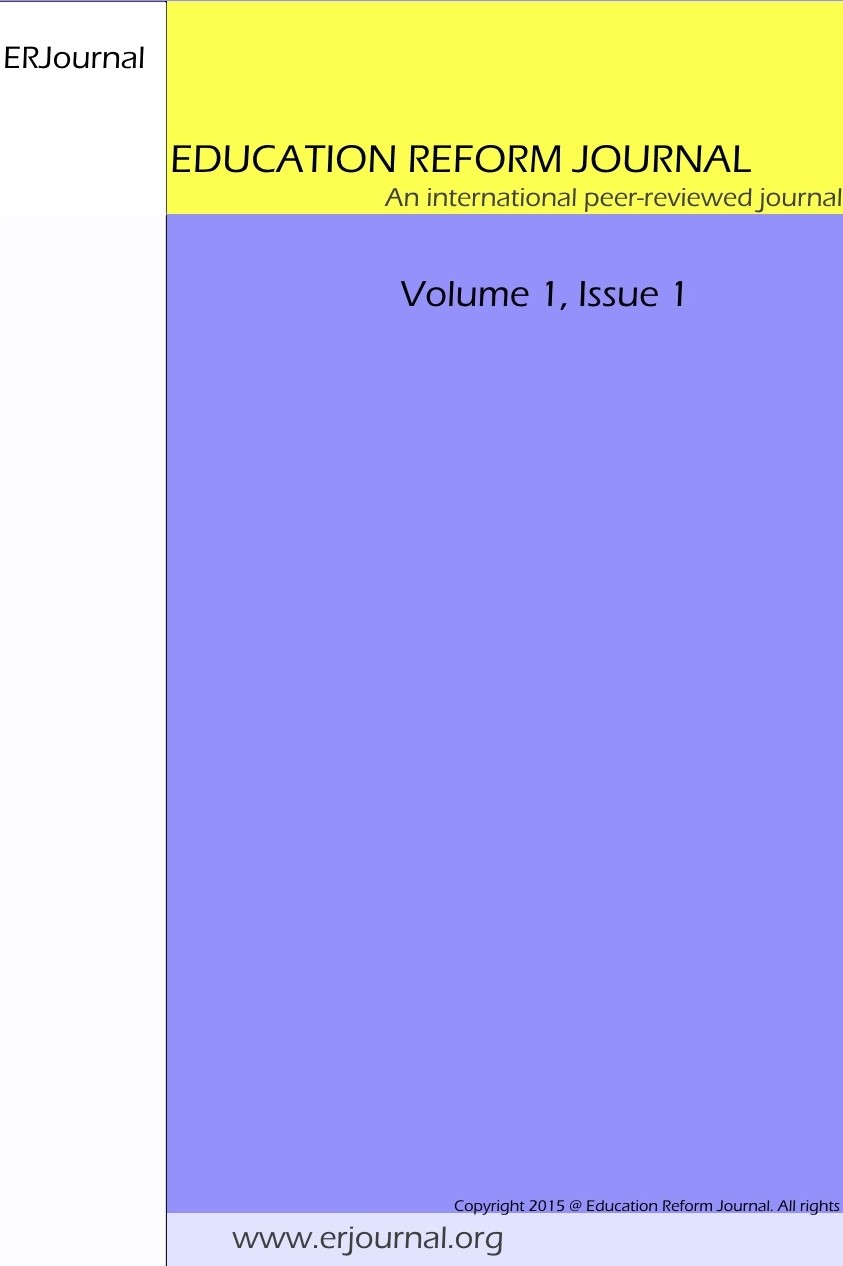Impact of Instructional Alignment Workshop on Teachers’ Self-Efficacy and Perceived Instruction Performance
Impact of Instructional Alignment Workshop on Teachers’ Self-Efficacy and Perceived Instruction Performance
The extent to which teachers’ level of efficacy and quality of instructional performance changed after they receive a professional development workshop on instructional alignment is currently unknown in a school district in Florida. As such, the researcher investigated how professional development on standards and assessment alignment impacts teachers’ self-efficacy level in writing lesson plans. Results indicated that teachers' level of efficacy and quality of instructional performance, measured as their beliefs on how alignment can benefit their students and improve how they write lesson plans, overall improved after the professional development they underwent. The findings can be used to initiate positive social change, starting with the field of education. The results benefit not only the students but also the teachers themselves, as well as the administrators and school districts. State and federal policymakers can also benefit with better evidence of how professional development could work to improve instructional alignment.
Keywords:
Instructional alignment, Professional development, State standards, Teacher self-efficacy Instructional performance,
___
- Carr-Chellman, A. A. (2015). Instructional design for teachers: Improving classroom practice. Routledge.
- Coburn, C. E., Hill, H. C., & Spillane, J. P. (2016). Alignment and accountability in policy design and implementation: The Common Core State Standards and implementation research. Educational Researcher, 45(4), 243-251.
- Creswell, J. W. (2008). Educational research: Planning, conducting, and evaluating quantitative and qualitative research. Upper Saddle River, NJ: Prentice Hall.
- Every Student Succeeds Act, Pub. L. No. 114-95 (2015).
- Fulmer, G. W. (2011). Estimating critical values for strength of alignment among curriculum, assessments, and instruction. Journal of Educational and Behavioral Statistics, 36, 381-402. doi:10.3102/1076998610381397
- Gay, L., Mills, G., & Airasian, P. (2006). Educational research: Competencies for analysis and application (8th ed.). Upper Saddle River, NJ: Pearson.
- Hassler, L., Beech, M., & DeMeester, K. (2005). A study of the alignment of Florida’s Sunshine State Standards with the Florida Comprehensive Assessment Test: Reading. Retrieved from http://www.fldoe.org/core/fileparse.php/7478/urlt/0065587-langarts.pdf
- Polikoff, M. S. (2012a). The association of state policy attributes with teachers’ instructional alignment. Educational Evaluation and Policy Analysis, 34, 278-294. doi:10.3102/0162373711431302
- Polikoff, M. S. (2012b). Instructional alignment under No Child Left Behind. American Journal of Education, 118, 341-368. Retrieved from http://www.jstor.org/stable/10.1086/664773
- Polikoff, M. S., & Fulmer, G. W. (2013). Refining methods for estimating critical values for an alignment index. Journal of Research on Educational Effectiveness, 6, 380-395. doi:10.1080/19345747.2012.755593
- Polikoff, M. S., & Porter, A. C. (2014). Instructional alignment as a measure of teaching quality. Educational Evaluation and Policy Analysis, 36, 399-416. doi:10.3102/0162373714531851
- Polikoff, M. S., Porter, A. C., & Smithson, J. (2011). How well aligned are state assessments of students of student achievement with state content standard? American Educational Research Journal, 48, 965-995. doi:10.3102/0002831211410684
- Porter, A. C. (2002). Measuring the content of instruction: Uses in research and practice. Educational Researcher, 31(7), 3-14. doi:10.3102/0013189X031007003
- Porter, A. C., Polikoff, M. S., Barghaus, K. M., & Yang, R. (2013). Constructing aligned assessments using automated test construction. Educational Researcher, 42(8), 415-423. doi:10.3102/0013189X13503038
- Webb, N. L. (2007). Issues related to judging the alignment of curriculum standards and assessments. Applied Measurement in Education, 20, 7-25. Retrieved from http://www.cehd.umn.edu/edpsych/C-BAS-R/Docs/Webb2007.pdf
- Wolfe, E. W., Viger, S. G., Jarvinen, D. W., & Linksman, J. (2007). Validation of scores from a measure of teachers’ efficacy toward standards-aligned classroom assessment. Educational and Psychological Measurement, 67, 460-474. doi:10.1177/0013164406292091
- ISSN: 2602-3997
- Yayın Aralığı: Yılda 2 Sayı
- Başlangıç: 2015
- Yayıncı: Mustafa ÖZMUSUL
